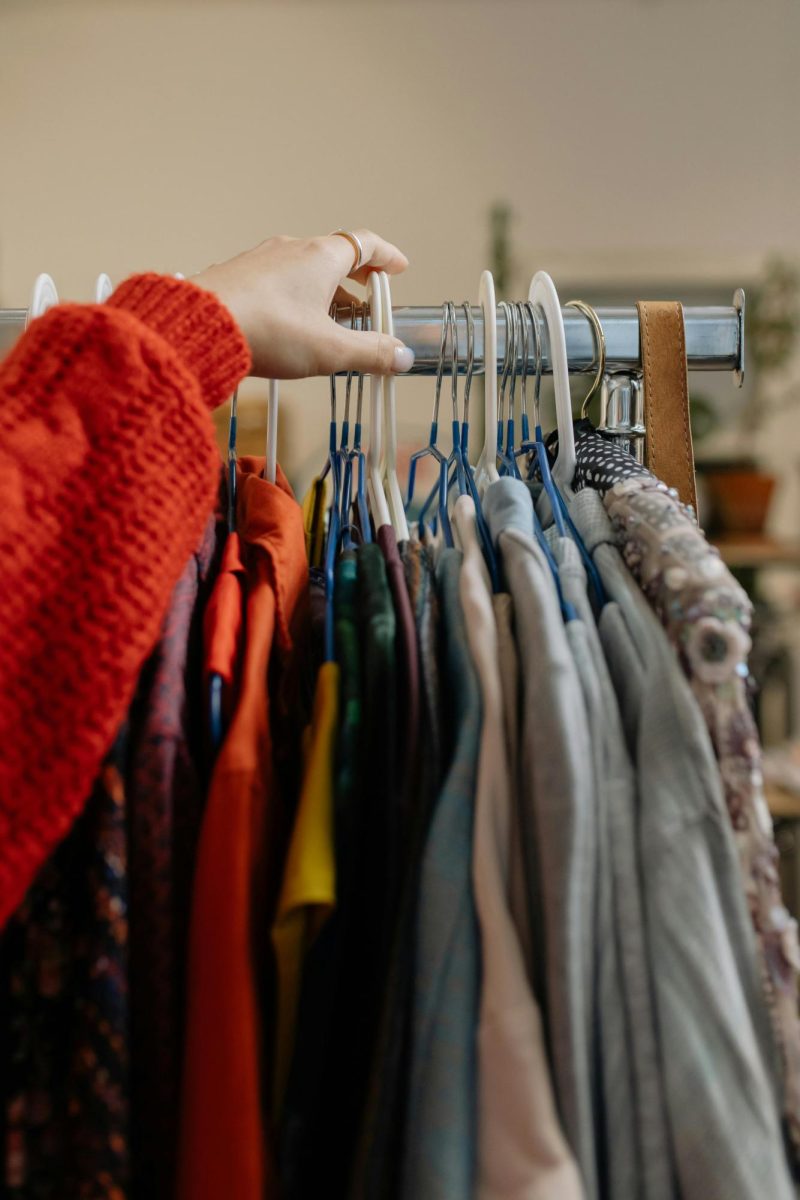With corporations like Shein, Zara and Amazon dominating the market, how are smaller, ethical businesses supposed to compete? According to Austin Monthly and KXAN, over 12 small businesses across Austin have closed in the past year. This struggle disproportionately affects stores focused on sustainability.
The clothing industry favors fast fashion through short-lived trends. Upcycled, handmade clothing store Shop Slow aimed to combat the negative effects of that. Despite Shop Slow’s popularity on social media with over 14,000 followers on Instagram, the store shut down late February after one year in their physical location. Owners Rebecca Wright and Mickaela Friedman held a large party outside the shop to say goodbye.
“I’m proud of what we’ve accomplished,” Wright said. “We existed in Austin, and that’s not easy.”
Increased rent prices caused the store to close, a trend affecting other small businesses across the city. Wright said even after “jumping through hoops” to receive funding from the City of Austin, it wasn’t enough to stay open. Other reasons, as Friedman said on their social media accounts, included the inherent struggles of slow shopping models in a capitalist society.
“The current system isn’t built for businesses like this to thrive long term,” Friedman said. “Capitalism rewards mass production, speed, endless growth and things that slow fashion actively resists.”
Rapid and constantly changing trends often leave customers feeling like they have to keep up. Cheaply made clothes degrade quickly and are made to be thrown out and upgraded for something new. Quality, timelessness and ethically made clothing has become a rare find in the industry.
“It’s billion dollar corporations that are profiting off of how we attach our value to newness,” Friedman said. “Our clothes have become status symbols instead of just something that we wear.”
While their sustainability model may not fit as a physical storefront, their message continues through activism and awareness. Friedman’s involvement in Austin’s annual Slow Fashion Festival is another means of promoting their message and showcasing slow fashion creators and designers. Friedman inherited Shop Slow after it closed its doors and plans to keep it running through pop-ups, markets and educational resources like sewing classes and upcycling workshops.
“Small businesses and sustainable designers need your support more than ever,” Shop Slow said on their social media. “Every purchase you make, every designer you support, it all counts. Your choices create real impact, and together, we can keep pushing for change.”
Wright and Friedman said they anticipate more opportunities ahead and more time to relax as their slow fashion messaging never goes out of style. While Wright plans to slow down and work on a personal quilt project with her grandmother, Friedman plans to continue promoting slower consumption. The two creatives said they don’t see their closure as a failure, but a celebration of a year full of accomplishments.
“We’ve had so many people say they feel inspired by what we’re doing, so I still feel like we succeeded in that way and made a statement,” Wright said. “If you don’t burn things down and change things up, you won’t know what’s next.”
































